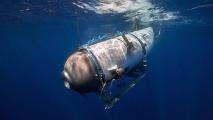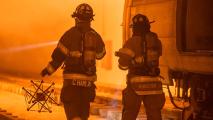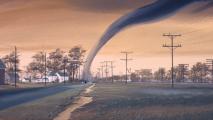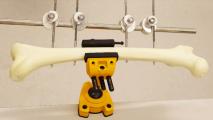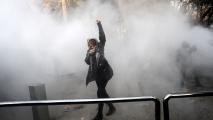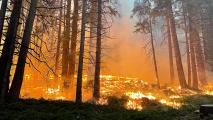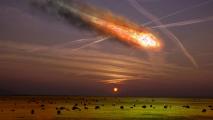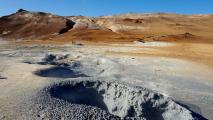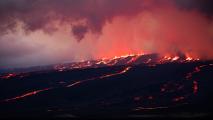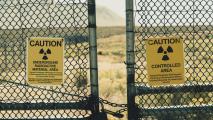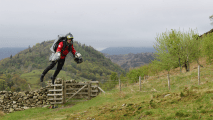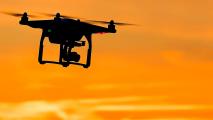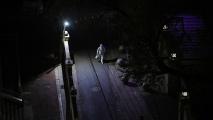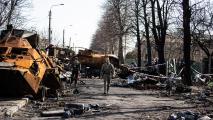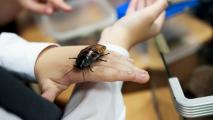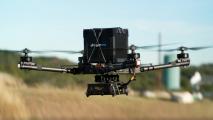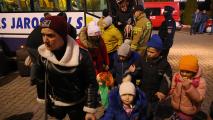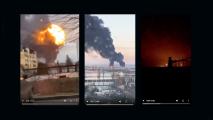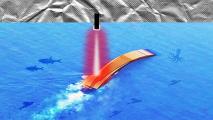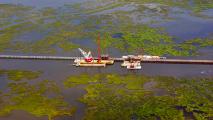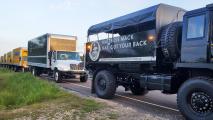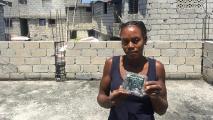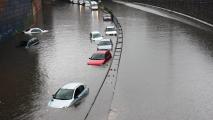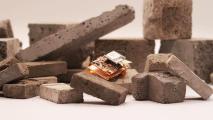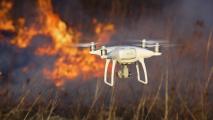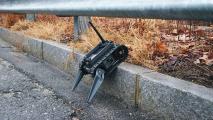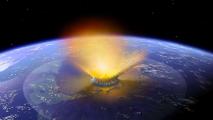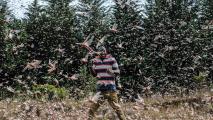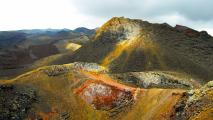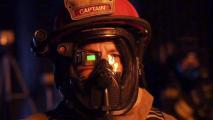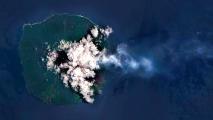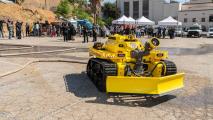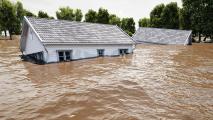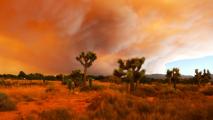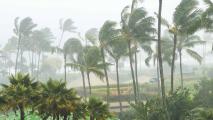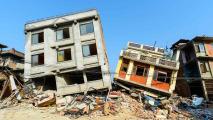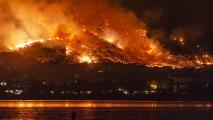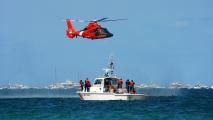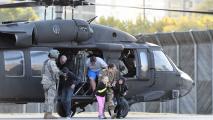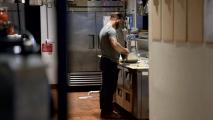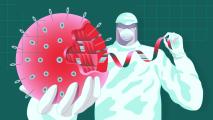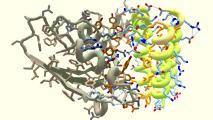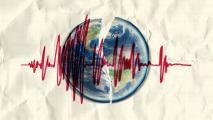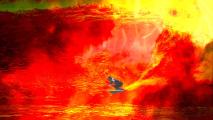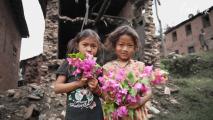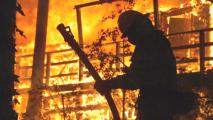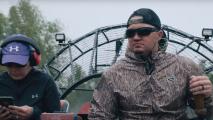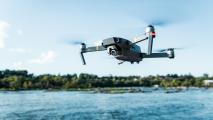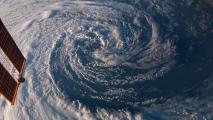Field: Disaster Response
With inspiration from “Tetris,” MIT researchers develop a better radiation detector
A new detector system based on the game “Tetris” could enable inexpensive, accurate radiation detectors for monitoring nuclear sites.
Shining a light on oil fields to make them more sustainable
Sensors and analytics give oil well operators real-time alerts when things go wrong, so they can respond before they become disasters.
What causes lithium-ion battery fires? Why are they so intense? And how should they be fought?
When a lithium-ion battery fire breaks out, the damage can be extensive. These fires are intense, long-lasting, and hard to fight.
Shape-shifting space robots help firefighters on Earth
The designer of a new type of rover for NASA has found a way to make her space robots useful to firefighters on Earth.
Self-sufficient “microgrids” could save you from power grid emergencies
Centralized power systems rely on large power plants and transmission grids, but microgrids are self-sufficient.
Treating broken bones in war zones made easier with low-cost device
The device performs similarly to its commercial counterparts but costs one-tenth the price.
Starlink turns on coverage over Iran to bypass censorship
Elon Musk's Starlink satellite internet is active over Iran, but the terminals to access it must make it inside the country.
These ancient trees survived a wildfire because of fire
The survival of an ancient grove of trees in Yosemite may be a powerful case study for controlled burns.
The cosmos can kill us in many ways. But the James Webb Space Telescope can help save us
Asteroid strikes, supernova explosions, and gamma-ray bursts are just a few of the ways the cosmos can kill us.
This is the damage a tiny speck of space debris can do at 15,000mph
A crater 5 inches deep was caused by something about the size and weight of an eraser on the end of a pencil.
“Passive cooling” could reduce indoor temps by up to 25 F in a heat wave
University of Oregon researchers have discovered that simple acts like drawing shades during peak sun and opening windows at night may help save lives during heatwaves.
Here is how to send a distress signal to space from anywhere on Earth
International search-and-rescue program Cospas-Sarsat uses satellites and emergency beacons to locate and help people in distress.
How a volcanic eruption was forecast five months in advance
Researchers correctly forecast a volcanic eruption five months in advance by running a modeling program on a supercomputer.
Lasers could cut lifespan of nuclear waste from “a million years to 30 minutes,” says Nobel laureate
If no solution is found, we're already stuck with some 22,000 cubic meters of long-lasting hazardous waste.
Watch: Medic in jet suit reaches mountain top in 3.5 minutes
A paramedic in a jet suit flew up a mountain in just 3.5 minutes, demonstrating how the tech could shave valuable minutes off response times.
Ukrainian artists turn to NFTs to tell their stories
A Kyiv gallerist and Puerto Rican art gallery are auctioning off NFTs of art created in conflict to support Ukrainian artists.
Drones and driverless cars could help with Ukraine’s humanitarian crisis
We need a universal code of conduct for deploying autonomous vehicles and drones in humanitarian settings.
WeChat users try to keep Shanghai lockdown protest video ahead of censors
WeChat users have turned to all manner of tricks in a cat-and-mouse game with CCP censors to keep a video about the Shanghai lockdown online.
The future of classified intelligence may be sharing it
Faced with an enemy adept at information warfare, the US and allies are turning to a new, unusual way to use classified intelligence.
Giant cyborg cockroach could be the best search-and-rescue bot
The cyborg cockroaches are outfitted with sensors that can identify heat, carbon dioxide, and body movements.
Medical drones to transport blood being rushed to Ukraine
Medical drones are being rushed to Ukraine to help residents get the medical supplies they need in the midst of the war with Russia.
People are booking Airbnbs in Ukraine they’re never going to use
People are booking Airbnbs in Ukraine as a way to get money directly to hosts living in the nation, which is under attack by Russia.
Starlink lands in Ukraine
Starlink satellite internet service has been established in Ukraine.
Airbnb offering free temporary housing to refugees of Russo-Ukrainian war
Airbnb has announced that it will help temporarily house up to 100,000 refugees of the Russo-Ukrainian war.
Open source intelligence exposes war as never before
In a new era of open source intelligence, Russia’s invasion of Ukraine can be studied by anyone with the desire to find, and analyze, data available to all.
Undersea cable laws have hardly changed since 1884 – Tonga shows they need modernizing
Cable-laying ships navigate complex but outdated maritime laws.
Sun-powered soft robot could mop up the seas
Inspired by steam engines and water-walking insects, this soft robot may one day mop up oil spills at sea.
Forensic scientists continue mission to identify 9/11 victims
Forensic scientists have identified two more 9/11 victims and will soon use next-generation sequencing to analyze unidentified remains.
Rule-bending engineers protect New Orleans from Hurricane Ida
By going beyond the "100-year storm" standard for flood protection, U.S. engineers helped minimize the impact of Hurricane Ida on New Orleans.
Furniture store gives Hurricane Ida victims a place to sleep
Houston furniture store owner Jim “Mattress Mack” McIngvale is letting Hurricane Ida victims displaced by the storm sleep in his showroom.
Major earthquake in Haiti tracked by citizen seismologists
Private citizens are helping scientists study the recent earthquake in Haiti by hosting low-cost quake-monitoring devices.
Watching the moon’s “wobble” may help prevent flooding on Earth
A new NASA study predicts record flooding in the 2030s due to a combination of rising sea levels and a “wobble” in the moon’s orbit around Earth.
Goats are helping California battle wildfires
By having goats eat the dry vegetation that fuels wildfires, Californians can prevent the blazes from spreading into populated areas.
Insect-sized robot can run like a cheetah
An insect-sized robot with the agility of a cheetah could one day save lives by assessing disaster zones ahead of first responders.
New search and rescue drone listens for human screams
To help first responders find people during disasters, researchers are training a search and rescue drone to listen for human screams.
Throwable rescue robots sent to help at collapsed building
Teledyne Flir has sent at least two of its rescue robots to help hunt for survivors in a collapsed building in Florida.
Is NASA ready for an asteroid impact?
NASA is staging a week-long asteroid impact simulation during which participants will need to respond to a hypothetical impact scenario.
How tech helped beat back locust swarms in East Africa
Billions of locusts descended on East Africa in 2020, where new technology helped stop their spread.
Spectacular volcano eruption in Galapagos could lead to early warning system
Scientists used seismic monitors to record motion data of a volcano eruption, which could be used to understand early warning signals for a pending eruption.
Heads up display lets firefighters see through smoke
Qwake Technologies’ C-Thru is a heads up display that combines AI, augmented reality, and thermal imaging to help firefighters battle blazes.
Dropping drones into volcanoes can help us predict eruptions
The ratio of sulphur to carbon dioxide being released can be an indicator of imminent volcanic eruptions. Researchers are using drones to gather that data.
Firefighting robot helps battle blaze in Los Angeles
The U.S.’s first firefighting robot helped keep LAFD firefighters safe while they battled a blaze in downtown Los Angeles.
Getting disaster relief to the people who need it most
Delphi analyzes property damage and poverty levels to identify the people most in need of disaster relief, helping organizations maximize their impact.
Starlink satellites bring internet to wildfire-ravaged state
SpaceX’s Starlink satellites are providing residents and emergency responders affected by Washington wildfires with access to reliable internet.
Firefighting satellites help track wildfires in California
High-tech instruments on satellites are helping emergency responders and members of the public track wildfires in California.
Could a Norwegian “hurricane net” stop storms by cooling the sea?
Norwegian company OceanTherm uses bubble nets to keep ice out of fjords. Could a hurricane net weaken the storms?
Is it possible to predict the next black swan event?
Extremely rare but massively disruptive, no one sees a black swan event coming. But researchers are building a method that may change that.
Google wants to make the world’s largest earthquake detector
Google wants to create the world’s largest earthquake detector by using the accelerometers of Android phones and city-level location data.
This model may help predict wildfires
Wildfires need dry fuel to thrive. Researchers at Stanford are working on an AI model to measure dryness to help predict, and control, the blaze.
A new way to find people lost at sea
In a search and rescue mission at sea, time is of the essence. A new model may make missions faster — and save lives.
Real-time data can save lives in a disaster
Researchers are working on new algorithms that could provide emergency response managers with real-time data to save more lives.
Learning from disaster: An interview with Bryan Walsh
Human history is dotted with pandemics. We spoke with "End Times" author Bryan Walsh on how we can learn from them for the future.
Ford revs up production of coronavirus ventilators
Ford has promised to deliver 50,000 ventilators in 100 days. Here's how they can do it.
Converting shipping containers into ICUs for coronavirus patients
The CURA project aims to address the shortage of room in ICUs for coronavirus patients by creating new units out of shipping containers.
Nonprofits innovating in the face of COVID-19
In partnership with Stand Together
Wondering how you can help during the coronavirus? Here are five organizations that need your support, and how your donation could be doubled.
Will these lab-made viruses prevent a pandemic?
Previously blacklisted gain-of-function mutation experiments are back, and they’re being used to fight the next major pandemic.
Crowdsourcing the seed for coronavirus antiviral medications
Foldit players are solving a protein structure puzzle that could help kickstart coronavirus antiviral medications.
Private sector stepping up to combat COVID-19
Cosmetics companies and distilleries are making hand sanitizer and the UK asks manufacturers to make ventilators as the private sector responds to the pandemic.
New study into how tornadoes form could save lives
To improve our understanding of how tornadoes form, researchers involved in the TORUS Project will send tech straight into supercell thunderstorms.
MIT unveils simulation to help stop an asteroid impact
MIT has developed a simulation to determine the most appropriate way to stop an asteroid impact if one of the space rocks is headed toward the Earth.
Series|
Guardians of the Apocalypse
Will we ever predict earthquakes?
In 2010, an earthquake killed 222,570 people in Haiti, injuring 300,000 and displacing over a million. In an attempt to discover how to predict earthquakes, these researchers are using machine learning to analyze the acoustic data from tectonic plates.
Series|
Guardians of the Apocalypse
Could the human race survive a supervolcano?
The eruption of Mount Tambora pushed humanity to the brink of extinction. Today, active supervolcanoes still have the power to nullify our future. What can we do to prepare?
This big wave surfer is changing how we fight wildfires
Fire retardant spray contains toxins that are harmful to the environment and first responders, but Jeff Denholm is looking to change that.
NASA wants YOU to help track landslides
NASA is enlisting citizen scientists to collect important data on recent landslides, in an effort to improve prediction models and assist in disaster prevention.
Could we end earthquake deaths?
Thousands die in earthquakes every year - even though we know how to build safely. This engineer is working with people in the most vulnerable places to figure out why.
A community at the frontlines of the war on wildfire
When facing literal hellfire, this community effort may be the only way to protect homes and lives from devastating wildfires.
Inside the Cajun Navy: How volunteers are training to rescue hurricane victims
Can civilian-led rescue be part of future disaster recovery efforts?
How drones are changing disaster relief
As Hurricane Florence hits, here's a look at how drones are changing disaster relief.
Why don't we believe extreme weather forecasts?
Research shows people don't take extreme weather predictions seriously. And don't take the necessary precautions as...



